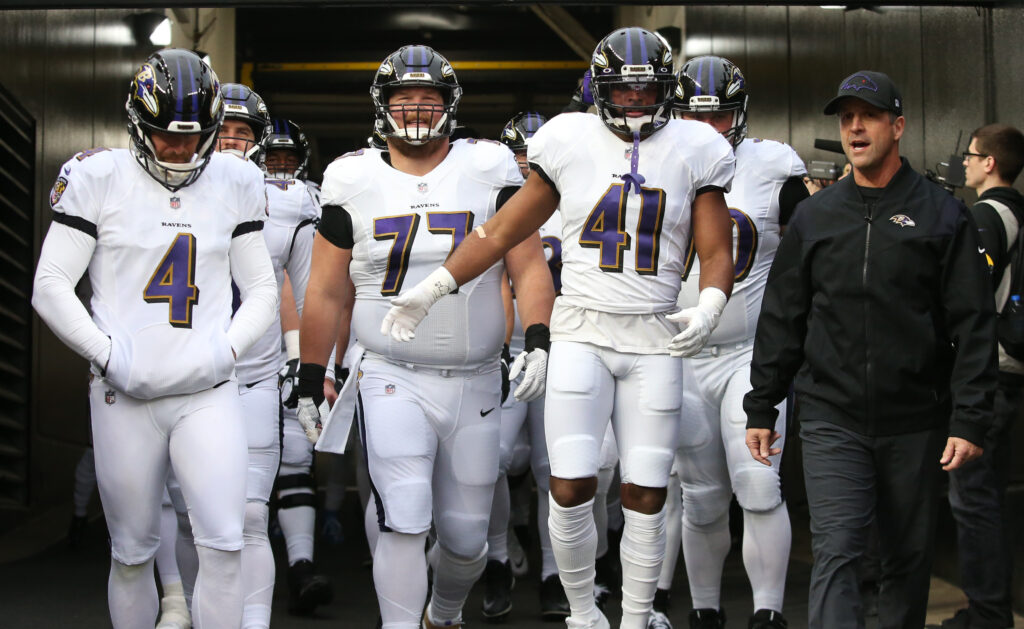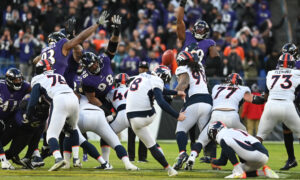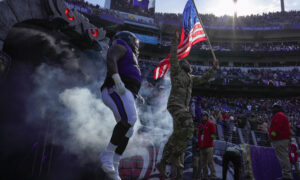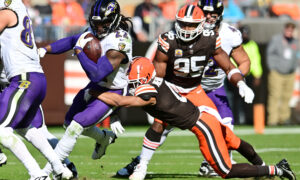OWINGS MILLS — Ravens general manager Eric DeCosta once declined to disclose why the team has so much success with compensatory draft picks, saying, “We guard those secrets like Coke’s formula.”
The team has been able to add high-caliber players with the extra selection, and the process has become an essential component to building the roster. The Ravens are able to replace players on their roster with draft picks, which helps the salary cap and keeps the roster young.
Over their history, the Ravens have been awarded 56 compensatory picks — the most in the NFL — ahead of the Dallas Cowboys (54), Green Bay Packers (52), and Los Angeles Rams (51). The San 49ers and Rams each had an NFL-best five compensatory picks awarded this year.
The Ravens were awarded a fourth-round compensatory pick, 134th overall, in this year’s draft for losing guard Ben Powers in free agency last offseason.
“Any time you have more draft picks, you have the chance to draft more players, obviously, and get lucky on a few guys,” DeCosta said. “That’s what this thing is really all about, putting yourself in a position to take advantage and do things to help your team.”

Dec 5, 2021; Ravens punter Sam Koch (4) and center Bradley Bozeman (77) were both compensatory picks by the team and had solid careers in Baltimore. By Charles LeClaire, USA Today Sports
Some of the more notable compensation picks include offensive lineman Edwin Mulitalo, center Bradley Bozeman, cornerback Brandon Stephens, tight end Isaiah Likely, and punter Sam Koch, who played more games (256) than anyone in Ravens history and is currently an assistant coach with the team.
The Ravens also have eight picks in the 2024 draft. DeCosta should be able to find value with that extra fourth-round pick. The team has pressing needs on the offensive line, outside linebacker, wide receiver and in the secondary at both cornerback and safety.
While there will be much debate among the Ravens’ coaches, scouts, and front office over the three days of the NFL draft, the team should be able to fill gaps in the roster.
“Our draft room is, ‘Say what you think, or forever hold your peace,’ and everybody says what they think,” Ravens coach John Harbaugh said. “Nobody is ever holding their peace, so it’s not peaceful. It’s not, but the conflict is good. We try to confront everything, every aspect of our football [team], our evaluations [and] our scheme.
“Everything we do football-wise, we try to confront it together to make it better. We’re not confronting one another, ever. We’re confronting the issues.”






